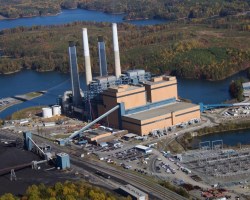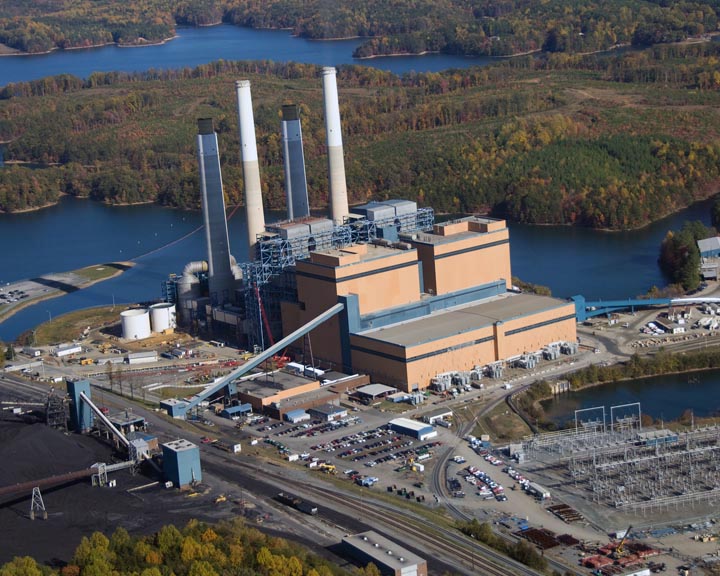
Duke EnergyA Duke Energy coal plant bleching pollution in Stokes County, N.C.
North Carolina’s numerous coal plants might be driving Tar Heel State residents to kill themselves.
Suicide is a leading killer in America, and links between air pollution and suicide rates have been known for years. Breathing in bad air might drive people to take their own lives by worsening their health problems, affecting their nervous systems, or generally lowering their life satisfaction.
So Wake Forest Baptist Medical Center researcher John Spangler set about trying to understand how polluting coal-fired power plants might affect county-by-county suicide rates in North Carolina, where the statewide rate is higher than the national average [PDF]. What he discovered was an alarming correlation.
Spangler looked at census data, mortality rates, and air contamination levels in North Carolina counties. He found that for every coal plant operating in a county, the number of yearly suicides rose by 1.96 people for every 100,000 people living there. The results were published in the Journal of Mood Disorders [PDF].
From a press release about the study, published by the medical center:
As there were 20 coal-fired electricity plants in North Carolina when this study was carried out, that means there were about 40 suicides a year per 100,000 population related to the plants. When applied to the state’s year 2,000 population of 8,049,313, this equals about 3,220 suicides a year associated with coal-fired electricity plants.
There are many factors that drive people to take their lives, of course, and there was no way that Spangler’s study could account for all of them. That said, he thinks his findings could be useful. Again from the press release:
“Still, it raises the interesting question of whether suicide in a given population is related to the presence or absence of coal-fired electricity plants and the air quality,” he said. “Further research is needed to understand what factors related to coal burning actually are at play and suggest that tighter regulation of coal-fired power plant emissions might cut down on county suicide rates in North Carolina.”



